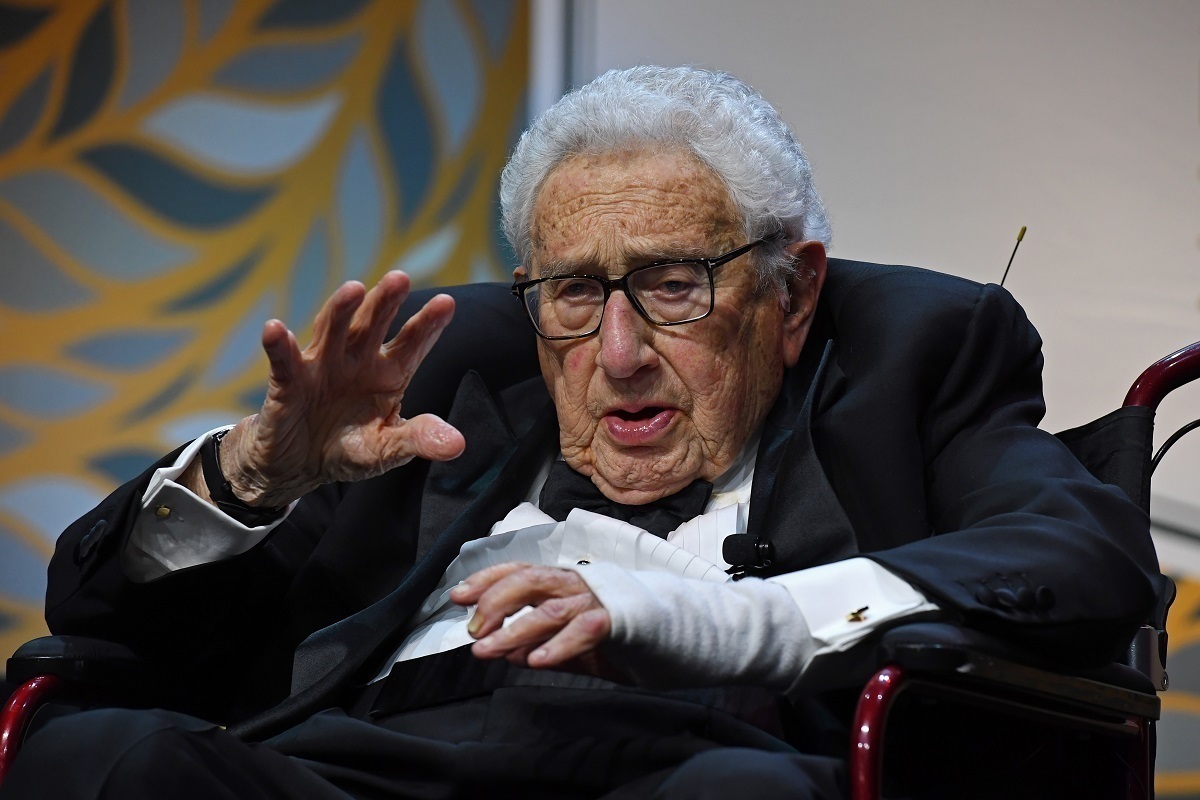Henry Kissinger dies: patriarch of American diplomacy or war criminal
[ad_1]

Henry Kissinger, United States Secretary of State under Richard Nixon, has died at the age of 100. The patriarch of the American diplomat and Nobel laureate shaped US foreign policy for decades, but critics considered him a war criminal.
Henry Kissinger, Richard Nixon’s former secretary of state who became one of the most prominent and controversial figures in US foreign policy in the 20th century, has died. He was 100 years old, writes The Guardian.
His consulting firm, Kissinger Associates, announced his death in a statement Wednesday evening, but did not disclose the cause of the demise of the 100-year veteran of American foreign policy.
The famed diplomat advised a dozen presidents during his long career, including Joe Biden, and won a Nobel Prize for negotiating an end to the Vietnam War.
But his legacy was also defined by his disdain for human rights and efforts to protect US corporate interests at all costs, with opponents around the world calling him a war criminal.
Kissinger supported the Indonesian military dictatorship during the invasion of East Timor, supported the apartheid South African regime’s invasion of Angola, and collaborated with the CIA to overthrow democratically elected Chilean President Salvador Allende. He also authorized the wiretapping of reporters and his own staff.
Kissinger was a Harvard academic before becoming national security adviser when Nixon took the White House in 1968. Working closely with the President, he influenced major decisions regarding the Vietnam War, including the covert bombing of Cambodia in 1969 and 1970. This was part of what Nixon called the “madman theory,” an attempt to make North Vietnam believe that the US president would do absolutely anything to end the war.
Kissinger survived Nixon’s fall during the Watergate scandal and served Gerald Ford, leaving the government after Jimmy Carter won the election in 1976.
Kissinger’s policy toward the Soviet Union was not confrontational enough for the Reagan administration, ruling out any thought of a return to the 1980s.
Kissinger’s legacy differs from that of the political and intellectual right and left, notes The Guardian.
On the right, he is considered a brilliant statesman, a skilled diplomat, and an exponent of power politics aimed at benefiting America, the country to which his family fled after leaving Germany in 1938.
There is hostility on the left over his record in Chile, where the CIA engineered the overthrow of Salvatore Allende; in Pakistan, where he and Nixon turned a blind eye to the murder of hundreds of thousands of people; in the Middle East; In Cyprus; in East Timor and many other places where the United States left its ominous mark…
Following the news of his death, prominent US officials paid tribute to Kissinger. George W. Bush said the US had “lost one of the most trusted and distinctive voices in international affairs,” while Michael Bloomberg, the former mayor of New York, said Kissinger was “endlessly generous with the wisdom gained during an extraordinary life.”
A giant of the Republican Party, Kissinger remained influential until the end of his life, thanks in large part to his founding of his New York-based geopolitical consulting firm in 1982 and his authorship of several books on international affairs.
In the early 2000s, Kissinger supported the George W. Bush administration in its invasion of Iraq. Another supporter of that war, journalist Christopher Hitchens, wrote that Kissinger should be tried for war crimes.
In fact, for negotiating the Treaty of Paris that ended the Vietnam War, Kissinger and North Vietnamese leader Le Duc Tho were awarded a joint Nobel Prize, although the North Vietnamese negotiator refused to accept the award. His 1973 Peace Prize was one of the most controversial awards in Nobel history because Kissinger was revealed to have supported Nixon’s 1969 bombing of Cambodia. Two members of the Nobel committee resigned because of this decision. The award prompted satirist Tom Lehrer to respond: “Political satire became obsolete when Henry Kissinger was awarded the Nobel Peace Prize.”
Kissinger’s firm said Wednesday that he died at his home in Connecticut and will be buried at a private family service, followed by a memorial service later in New York.
A Jewish teenager who fled Nazi Germany with his family, Kissinger developed a reputation in his later years as a respected statesman – giving speeches, advising Republicans and Democrats alike, and running a global consulting business. He has made numerous appearances at Donald Trump’s White House.
Kissinger turned 100 in May 2023. During an interview with CBS ahead of his birthday about those who viewed his foreign policy as a kind of “crime,” Kissinger was dismissive.
“This is a reflection of their ignorance,” Kissinger said. “It wasn’t intended that way. This is not how it was carried out.”
[ad_2]
Source link








